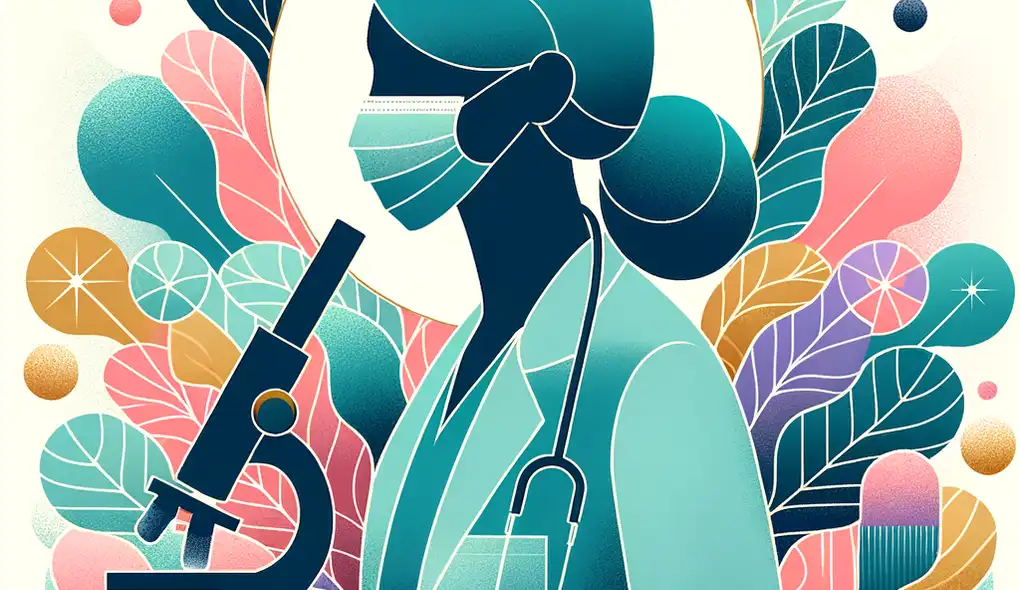How do you handle stressful situations in the laboratory?
Clinical Laboratory Technologist Interview Questions
Sample answer to the question
When faced with stressful situations in the laboratory, I focus on maintaining a calm and composed demeanor. I find that taking deep breaths and reminding myself to stay focused helps me to handle the situation more effectively. Additionally, I prioritize tasks and make a plan to ensure that I am organized and can tackle the stressors one by one. I also find it helpful to take short breaks to clear my mind and recharge. Lastly, I believe in the power of teamwork and collaboration. Seeking support from colleagues and sharing the workload can help alleviate stress and ensure that tasks are completed efficiently.
A more solid answer
In the laboratory, I have encountered various stressful situations, but I have learned effective strategies to handle them. Firstly, I prioritize tasks and create a plan to ensure that I am organized and can manage my time efficiently. This helps me to stay focused and not get overwhelmed by numerous responsibilities. Secondly, I always keep a clear line of communication with my colleagues and superiors. By sharing the workload and seeking their support when needed, we enhance our collaboration and manage stress collectively. Additionally, I find it helpful to take short breaks during stressful periods to clear my mind and recharge. These breaks allow me to maintain a high level of focus and productivity. Lastly, I actively seek professional development opportunities to enhance my skills and knowledge. By staying up-to-date with advances in laboratory techniques and technology, I feel more confident in handling challenging situations.
Why this is a more solid answer:
The solid answer expands on the basic answer by providing specific strategies and experiences related to the laboratory setting. It emphasizes the importance of prioritizing tasks and creating a plan, which aligns with the need for organizational skills mentioned in the job description. The mention of clear communication and collaboration highlights the importance of teamwork, another key skill mentioned in the job description. The inclusion of taking short breaks and seeking professional development shows a proactive approach to managing stress and improving oneself in the field.
An exceptional answer
Stressful situations in the laboratory require a combination of self-awareness, adaptability, and effective problem-solving. When faced with such situations, I start by acknowledging and managing my emotions. Taking a moment to understand the source of stress and regulate my feelings helps me approach the situation with a clear mind. I also understand the importance of adaptability in the laboratory environment. To adapt, I remain flexible and open to alternative approaches or methods when faced with unexpected challenges or changes. This allows me to quickly adjust my strategies and continue working efficiently. Additionally, I actively engage in problem-solving by breaking down complex tasks into smaller, manageable steps. By doing so, I can address each component systematically and ensure a thorough and accurate analysis. Lastly, I believe in the power of teamwork and collaboration. I actively seek opportunities to share my knowledge and learn from others, fostering a supportive environment. This not only helps to alleviate stress but also enhances the quality of our work.
Why this is an exceptional answer:
The exceptional answer builds upon the solid answer by emphasizing self-awareness, adaptability, and problem-solving skills. It goes beyond surface-level strategies and dives into the mindset and approach the candidate adopts in stressful situations. The mention of self-regulation and adaptability aligns with the evaluation areas of stress management and collaboration. Furthermore, the candidate's emphasis on problem-solving and teamwork showcases their analytical and critical-thinking skills, which are crucial for a Clinical Laboratory Technologist.
How to prepare for this question
- Familiarize yourself with common stressors in laboratory settings, such as time constraints, unexpected changes, and high-pressure situations. Reflect on past experiences and come up with specific examples of how you managed stress.
- Research and implement stress management techniques that work for you, such as deep breathing exercises, meditation, or creating to-do lists to stay organized.
- Develop good communication and collaboration skills. Practice explaining complex laboratory concepts to others and seek opportunities to work in a team environment.
- Stay updated with advancements in laboratory techniques and technology. This not only helps you adapt to changes but also boosts your confidence in handling stressful situations.
- Consider taking relevant courses or certifications to enhance your skills and knowledge in laboratory practices.
What interviewers are evaluating
- Stress management
- Organizational skills
- Collaboration
Related Interview Questions
More questions for Clinical Laboratory Technologist interviews